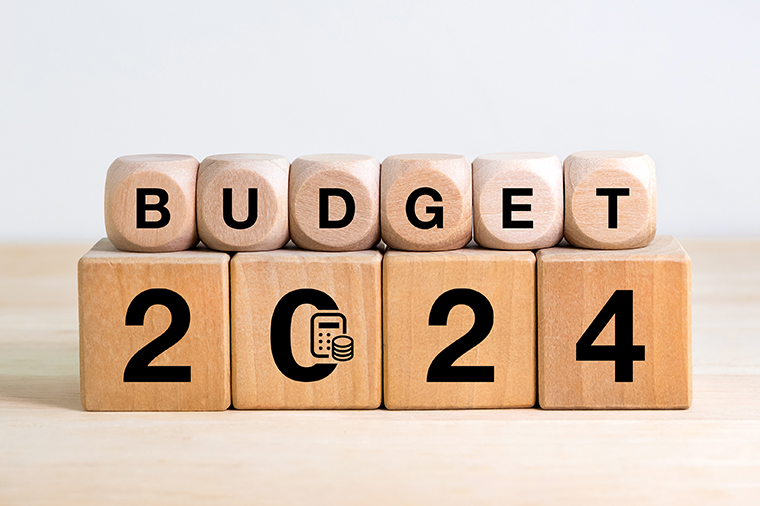Budget 2024: Relax I-T exemption limit to Rs 5 lakh under new tax regime, says EY
As the Indian government prepares to unveil its Budget for 2024, a significant proposal from Ernst & Young (EY), one of the leading global consulting firms, has captured the attention of policymakers and taxpayers alike. EY has recommended that the government increase the income tax (I-T) exemption limit to Rs 5 lakh under the new tax regime. This suggestion is part of a broader series of recommendations aimed at refining the tax system to bolster economic growth and enhance household savings.
Context and Current Tax Framework
The current tax regime, introduced as an optional framework alongside the existing one, offers reduced tax rates but eliminates many deductions and exemptions, such as those under Section 80C. The existing exemption limit under this new regime is set at Rs 2.5 lakh, which has been the subject of much debate and discussion regarding its adequacy in the face of rising inflation and living costs.
EY’s Proposal: Key Details and Rationale
EY's proposal to elevate the exemption limit to Rs 5 lakh is driven by several key considerations:
- Inflation and Cost of Living Adjustments: EY points out that the current exemption threshold does not align with the increased cost of living, particularly in urban areas where a significant portion of the tax-paying populace resides.
- Boosting Disposable Income: By increasing the exemption limit, the proposal aims to enhance disposable income for middle-class families, potentially revitalizing consumer spending and aiding economic recovery.
- Simplification of Tax Compliance: EY argues that higher exemption limits under the new regime would simplify tax compliance, encouraging more taxpayers to opt for the new regime, thus broadening the tax base.
"The revised limit is proposed not only to align the tax structure with economic realities but also to provide relief to the salaried class and to encourage higher compliance with the new tax regime," explains Rajiv Chaudhary, a senior tax partner at EY India.
Impact Assessment: Who Benefits?
The proposed change is poised to benefit a large segment of middle-income earners:
- Middle-Class Taxpayers: This group would experience a direct benefit from the increase in the tax threshold, potentially saving thousands in tax payments, which could then be redirected towards savings or spending.
- Young Professionals: Young earners entering the workforce would find the higher threshold a significant boon, potentially influencing their long-term financial planning and investment strategies.
- Small Business Owners: With more disposable income, consumption patterns could shift, possibly increasing the demand for various goods and services and benefiting small to medium-sized enterprises.
Government and Expert Opinions
While the proposal has garnered support from various sectors of society, government officials and some economic experts remain cautious:
- Government Perspective: Some officials express concerns regarding potential revenue losses, which are critical for funding public welfare programs and infrastructure projects.
- Economic Experts: There is a consensus among some economists that while the proposal could stimulate consumption, it must be balanced against the need for fiscal prudence, especially in light of ongoing economic recovery efforts.
"Adjustments to tax exemption thresholds have to be meticulously planned to avoid significant fiscal deficits. The government must weigh the potential short-term consumption benefits against long-term fiscal health," notes Dr. Ananya Roy, a noted economist.
Comparative Analysis: Global Perspective
Looking globally, countries like the United States and the United Kingdom have periodically adjusted their tax exemption limits to reflect changes in the economy and inflation. These precedents provide valuable insights into the potential effects of such changes, with many showing positive outcomes in terms of economic growth and taxpayer satisfaction.
Policy Implications and Challenges
Adopting EY’s proposal would not be without challenges:
- Revenue Implications: The immediate challenge would be compensating for the potential shortfall in tax revenue.
- Redistribution Concerns: Policymakers need to ensure that such tax benefits do not disproportionately favor the higher income brackets at the expense of the fiscal capacity to fund social programs.
Future Steps and Considerations
As discussions around Budget 2024 intensify, the government may consider conducting a detailed analysis of the potential impacts of this proposal, possibly involving simulations and economic forecasting to predict its effects on revenue and economic activity.
EY’s proposal to raise the income tax exemption limit to Rs 5 lakh under the new tax regime is a bold move aimed at reinvigorating the economy by boosting consumer spending and simplifying tax compliance. As Budget 2024 approaches, it will be crucial for policymakers to carefully weigh the benefits of increased household spending against the imperative to maintain fiscal health and support public services. The decision could have profound implications for India’s economic landscape, affecting everything from individual spending power to national economic strategies.




